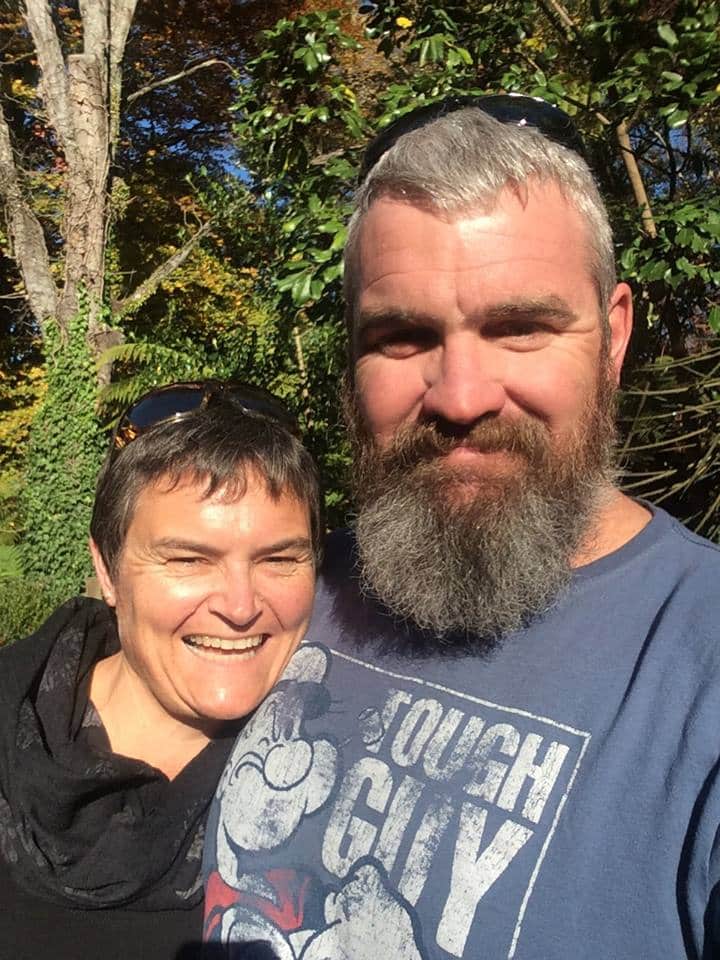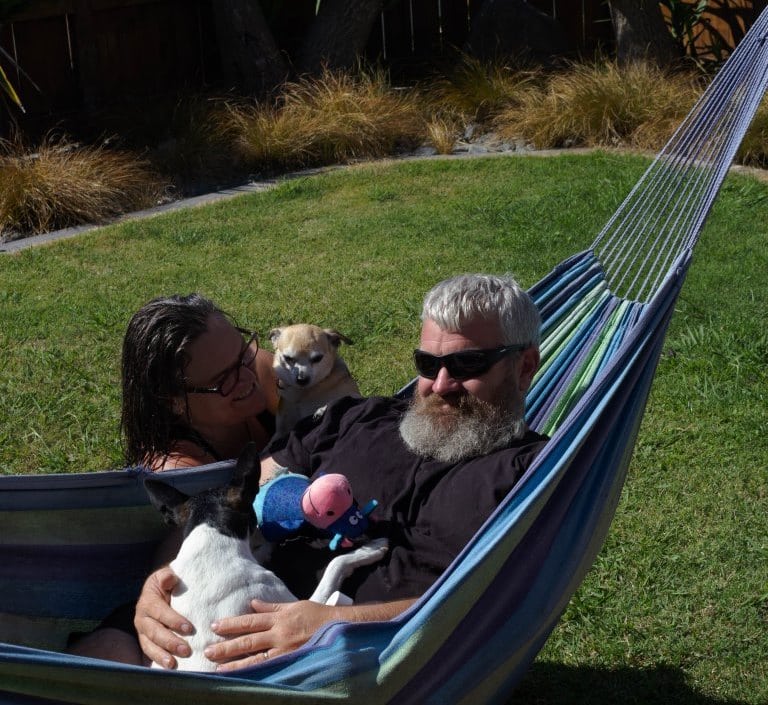
5 April 2020 – I’M AT MY BEST when I’m moving – whether it’s building products for sale in our home workshop, walking down to get a coffee at the local cafe, or maybe visiting a client to plan a job for our timber craftsmanship business.
As I write this, New Zealand is in the midst of our COVID-19 Lockdown, and what was once normal is now unthinkable.
Like most of us, being in lockdown is a fairly large change to my daily routine. And those same people who say I can’t sit still, also say that change can be a problem for me. As autistics, being taken from our daily routines can at the very least be unsettling. For some of us, it can be a lot worse.
Build structure and think ahead
My wife Sharron and I have had to come to terms with the new normal that lockdown brings. The closed stores. The closed gym. Our business gets most of its turnover from face-to-face marketing, so our income has dried up. But ironically, many neurotypicals have struggled more, some of them quite publicly. Funny to see how they don’t like it when their routine or liberty is challenged. Welcome to the new world!
It’s a world where we can’t just go where we want anytime we choose. We need to plan.

Paul and Sharron Freeman
For us, it means that instead of ordering medication repeats a couple of days out, we need to allow a week as the doctors and pharmacy are working under different protocols and things just take longer. A trip to the supermarket isn’t like it used to be. Sometimes we need to line up outside, at a respectful space to others. At least we don’t get jostled now. People are much more respectful of space. When we get inside, the store might not have what we regularly get. It can be a problem. I needed to allow myself the permission to feel how I felt. It’s a weird time, so it’s okay to feel weird. A little thing like not having the right aioli makes me feel anxious, and that’s ok. We’ll get some more soon, I tell myself. And we did – Sharron came home with three jars and my daughter (who works at a supermarket) came home with two.
We have dogs. Mine is a foxy, and he’s intuitive. Often, he knows how I feel before I do. Pets offer unconditional love and support, more so in times of need and stress. Cuddle them and have fun with them. Our foxy loves his ball, and the lockdown rules say I can go to the park with him to play fetch, so we do. It makes him happy, which makes me happy. Little things like that make lockdown bearable.
Communicate and keep connected.
Face to face I’m not a natural communicator, whereas it could be said Sharron is the opposite. This can be a bit of a challenge when we’re together for 24 hours a day. So, Sharron suggested that we needed to be comfortable telling each other that we needed some time to ourselves if needed. This was probably more for my benefit, I find my brain recharges when I can sit and read or work on something uninterrupted. But the point here is that it’s important to talk to each other, whether flatmate, spouse, or whatever. I talk to my dog as well. He’s not a particularly good talker himself but is a good listener.
I can’t visit the café – but the owner and I are good friends and we talk online. I find it easier to express myself in words most of the time anyhow, so this suits me. Like many on the spectrum, I’m not particularly fond of the phone, but will use it if I must. I’ve got friends who I talk to on messenger regularly, so no change there. My mother, who lives in another town, really appreciates it when I call her. The point here is we might have to live within our bubble, but we can communicate outside it. It might just be different to how it was before lockdown.
Remember, it’s a two-way thing. Sometimes we need someone to listen to us, sometimes we’re the listener. But keep at it, on your terms. It’s important.
Stay informed – but at a level that suits you

Paul and Sharron Freeman with their dogs in lockdown.
It’s good to keep up with the latest developments, but it can easily become a bit much. Approaching lockdown, my wife needed to be more informed that I did, so there was always TV news on, with press conferences and updates. If I was outside in our workshop, I’d receive an update from Sharron when I came back inside for a break, or occasionally if there was something out of the ordinary Sharron would come out to the workshop to let me know.
I found myself getting grumpy and upset more often than normal. It was only after spending some time in thought that I realised that the constant updates and reminders were causing me a reasonable amount of anxiety. This realisation helped me consciously limit the news and updates I saw and this made things much better. Others may feel better knowing every bit of detail – knowing all the details might give a better understanding. For some, keeping to their bubble might mean deliberately avoiding any lockdown news, and relying on those around them to tell them anything that they really need to know. It’s about finding the balance that works for you and letting others around you know.
It’s only for a season
Someone wise once told me that the only sure things in life are death and taxes. A bit morbid in these times, I know. I’d like to add one more thing. Change.
I know that our ‘new normal’ will only last for a time. It might be four weeks. It might be eight. It might be somewhere in between. But I do know that our lockdown will end, and we’ll move on to a ‘newer’ normal that will be different again. It’ll come with its own good things, and things not so good. Until then, all I know is I need to accept what we have now and make the most of the good things we have. Even if I can’t sit still.
Kia Kaha and stay safe.
- Paul and Sharron Freeman operate Bay Autism Support in Hawke’s Bay.


